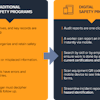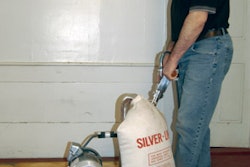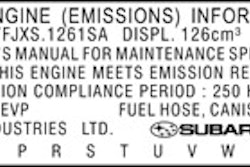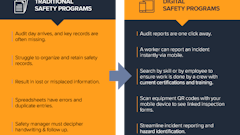Every once in a while (and more so with every passing day) you have to admit to yourself that you are a little behind the curve on a particular topic. Insurance is that kind of topic for me. I know more than the average person, but just enough to get into trouble if I am not careful.
So when I was asked to prepare an article about controlling insurance costs, I made a decision to ask for help from a pro who consults to dealers and rental companies about how to buy insurance.
I contacted Jim Ricker of J. Griffin Ricker & Assoc. to help me out. Jim is an independent consultant who works for dealer/rental companies to select coverage and negotiate premiums to make sure the business owner stays in the driver's seat when it comes to insurance costs. Jim's comments follow.
How to keep insurance costs down
First and foremost, losses must be kept under control. There are two factors of loss that drive premiums up, one is frequency and the other is severity. An underwriter will look more at the frequency and type of claims as opposed to the severity. The purpose for insurance is to protect against those losses that could put a company out of business or seriously impair the function of their day-to-day operations. Frequency could indicate that a serious claim looms. The day of the nickel and dime claims are a thing of the past. Dealers are going to have to do a better job at educating their employees and taking on a greater responsibility for loss prevention/control.
In today's business world, management has to set the culture of its business in order to survive. This also means making better choices when hiring staff. Companies need to check motor vehicle records, verify previous employment, industry experience, educational background, manufacturer's training and so on. They must require mandatory drug testing and complete compatibility testing for new hires. Companies like Raia & Associates Inc. offer Step One surveys that measure integrity, reliability, work ethics and attitude toward substance abuse. For information regarding the Step One program and employee testing, call (614) 851-9233.
Make your employees a part of the solution. If they are well informed they will work with you to control their losses. It's impossible for an employer to watch every employee every minute of the day, but it's not impossible for every employee to watch his or herself every minute of every day. If the employee understands what it means to them to prevent claims, from a monetary point of view and for their safety, they will respond in a positive manner.
Attitudes toward loss control and safety in the work place must come from the top down. It cannot start in the middle or at the bottom. If the owner of a company is not seriously committed to loss control by training and educating his/her staff, then his employees will not be committed nor will they place any credence in what is being thrust upon them. A good loss control coordinator and safety committee are essential to the success of any program regardless of the size of the company. From just a few employees to hundreds of employees, the need to monitor and to continue to educate is essential. It's also important to continue to repeat the guidelines and the methods you have adopted. Only by constant reinforcement and training will your program be successful. The idea of having your insurance company come in once or twice a year will not accomplish the positive results you seek. However, your insurance company is a good resource for educational information and can supply the literature and training materials you need.
By opting to take higher deductibles, implementing loss control procedures, providing employee handbooks and utilizing the resources your insurance company offers, your underwriter will be encouraged to apply the greatest amount of credits when rating your premiums. By making these few adjustments, the money you invest implementing them will more than likely be offset by your premium savings.
The other thing that determines premiums is purchasing the right product. Many companies will sell you insurance, but if they don't know your business, are not familiar with your risk or do not offer the products you need, they might not be price competitive.
Simple things like payroll codes, how you breakdown your sales numbers, the value placed on your buildings, contents and equipment are just a few areas that can have a significant impact on your premiums.
Insurance is one of the most important investments you will make in your company and many companies are opting to utilize the services of an insurance consultant like J. Griffin Ricker & Associates. Using a consultant, who works for you and not the insurance company to negotiate premiums and monitor your coverage to make sure you have the right protection, could save you thousands of dollars and finally put you in the driver's seat for the first time. By using a consultant who specializes in your industry, you take away the industry's power of making decisions that might not be in your best interest.
For more information regarding our service, call (888) 550-9233 or email us at [email protected].



















